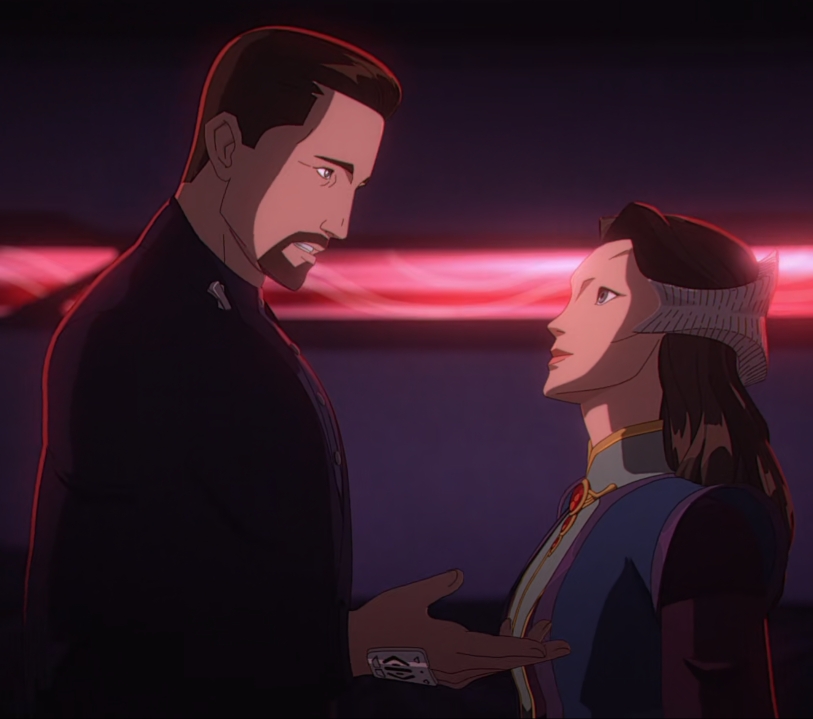
Twenty-five years ago I became a fan of J. Michael Straczynski’s Babylon 5 after watching “In the Beginning,” a two-hour prequel movie commissioned before the show’s final season. The film dramatized the “Earth-Minbari War,” a pivotal piece of backstory for the B5 universe. It was an odd movie, devised of loosely-connected vignettes told from the perspective of a character in the far future, and in retrospect I’m not sure I understood it at the time. But beneath the cacophony of alien mysticism, sci-fi military action, and somewhat bland human protagonists was the hint of something greater. So I stuck around, powering through the uneven start of the series that was airing nightly, until the show finally met its potential in its second year. It was worth the effort.
Watching The Road Home, the franchise’s surprise animated return, I wondered if it will provide the same kind of entry point that “In the Beginning” gave me. Like that film, this is an uneven affair, but it also contains more than a glimmer of what made Babylon 5 so special.
The film takes place at the end of the show’s five-year storyline, with John Sheridan (Bruce Boxleitner) departing the titular space station to continue his role as president of the Interstellar Alliance. Shortly after leaving he begins experiencing déjà vu, then becomes totally untethered from time after an accident. For the next hour we follow Sheridan as he slides into the future, past, and alternate timelines, which affords us the opportunity to revisit the show’s many characters and explore tantalizing “what-if” scenarios.
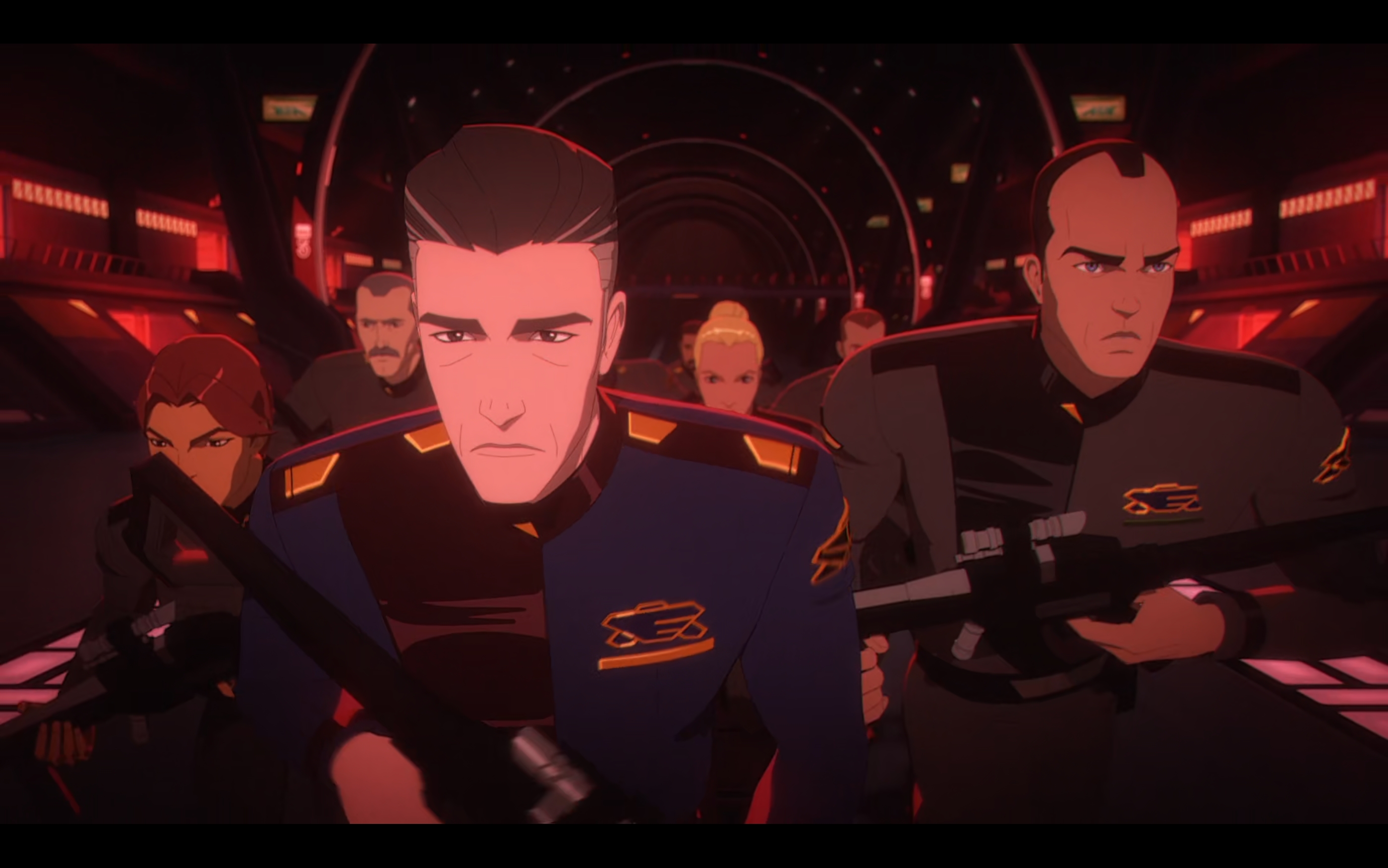
As a straight-up sci-fi action piece, The Road Home is a solid if unspectacular film. It’s main conceit of alternate realties is a well-trodden topic in modern speculative media, which Straczynski explores in a thoughtful (if sometimes clunky) way. The film offers a series of vignettes, similar to “In the Beginning,” that lack a cohesive connectivity beyond relating to Sheridan’s past. Efforts for the movie to convey it’s overall thesis are impaired by this lack of connectedness, as well as Sheridan having absolutely no agency over his journey. He, like the viewer, is led by the nose through the storyline until it resolves via the actions of others, which is strange given the film offers Sheridan a way to reign in his circumstances.
Still, in it’s bits and pieces its a well executed story, with a fantastic turn by Boxleitner. He carries the movie with his charisma: he’s funny one moment, earnest the next, then heroic five seconds later. It’s one of his best performances in the role.
The other performers fall into two camps: those returning from the series and those assuming roles from actors who have passed away. All the returning players, with one or two exceptions, slide back into their roles effortlessly. Peter Jurasik (Londo Mollari), Claudia Christian (Susan Ivanova), and Tracey Scoggins (Elizabeth Lochley) are so good it’s a shame they weren’t given more to do.
Of the new actors assuming old roles, Paul Guyet and Rebecca Riedy are the standouts. Guyet’s Zathras (originally portrayed by Tim Choate) is dead-on and honors the original performer while also giving the character its best showcase. His Jeffrey Sinclair is also eerily on point; not a one-to-one imitation of Michael O’Hare yet still unmistakably the character.

Riedy takes over Delenn from Mira Furlan and captures the serene humor and empathy of the character, contributing a sweetness to her relationship with Sheridan that tracks wonderfully from the original series.
Andrew Morgado had the hardest role to fill, as Andreas Katsulas was iconic as G’Kar. The actor avoided doing an impression, instead trying to embody the spirit of the character, but Katsulas was so distinctive in the role that I found myself distracted. It doesn’t help that he was saddled with a lot of obtuse metaphysical dialog that I’m not sure anyone could have pulled off. A good effort for a thankless job.
One aspect of the film that stuck out like a sore thumb was the humor. Straczynski is not a comedy writer and his stabs at humor are more miss than hit. There are some good moments, mostly exasperated attempts at levity from Sheridan and a few lines from Zathras (and then mostly due to the performance), but they are outweighed by the groaners, including two that would have never seen the light of day if another writer took a pass at the script.
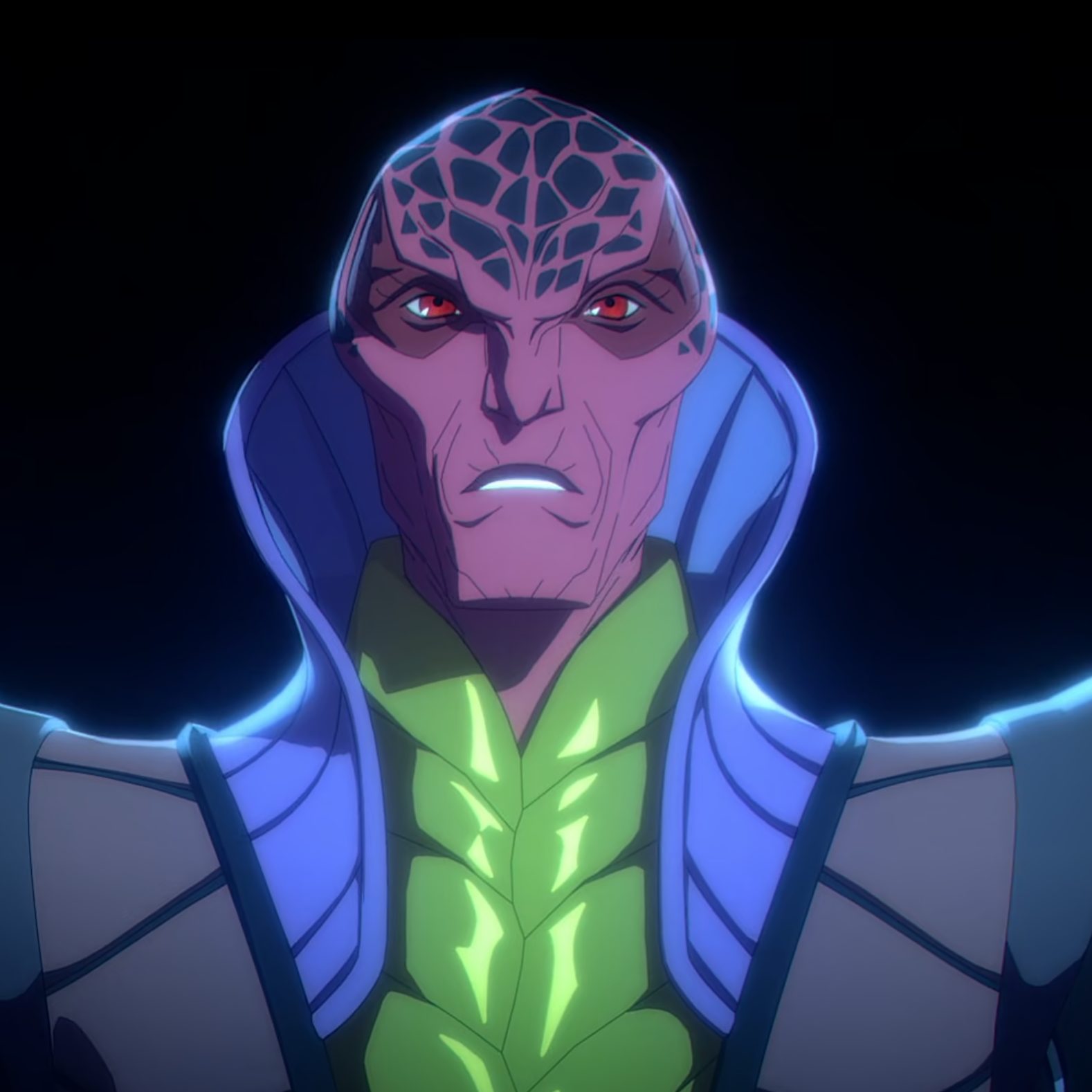
Very little is lost in the translation from live-action to animation. The space battles and hand-to-hand action scenes are crisp and dynamic and the Babylon 5 station has never looked better (both inside and out). My only criticism would be the character designs: they aren’t terribly expressive (especially when still) and in some places don’t resemble the original actors. Most of the core characters (Sheridan, Delenn, Garibaldi, Londo) are close enough, but others are either generic (Franklin, Ivanova, and Lochley) or weirdly exaggerated (G’Kar and Marcus). If there are future movies I hope they refine the style; it’s close but not 100% there yet.
The music team of Kristopher Carter, Michael McCuistion, and Lolita Ritmanis take over for a retired Christopher Franke. Their score captures the feel of the original series and nicely underscores the action, yet fails to deliver anything memorable. Franke’s music was the heart of Babylon 5, easily as vital to the show’s success as John Williams’s was to Star Wars, and it’s a shame they didn’t use more classic themes or devise new ones. I know this team’s music from other works and imagine they’ll provide an even better score in the future if given the opportunity.
After following the “prime” Sheridan through the space-time continuum, the film ends abruptly in an alternate reality that resets the series to something resembling it’s earlier years. I have mixed feelings about this: it was jarring to not get a denouement with the film’s main character, but I’m still touched by how the story is left off. The Babylon 5 family has lost more than its fair share of members in the past 25 years, and this felt like the show’s creator breathing unexpected life into his lost friends. It’s a beautiful thing that took me a moment to fully appreciate. One extra scene with the original Sheridan and Delenn would have addressed a lot of my concerns here.
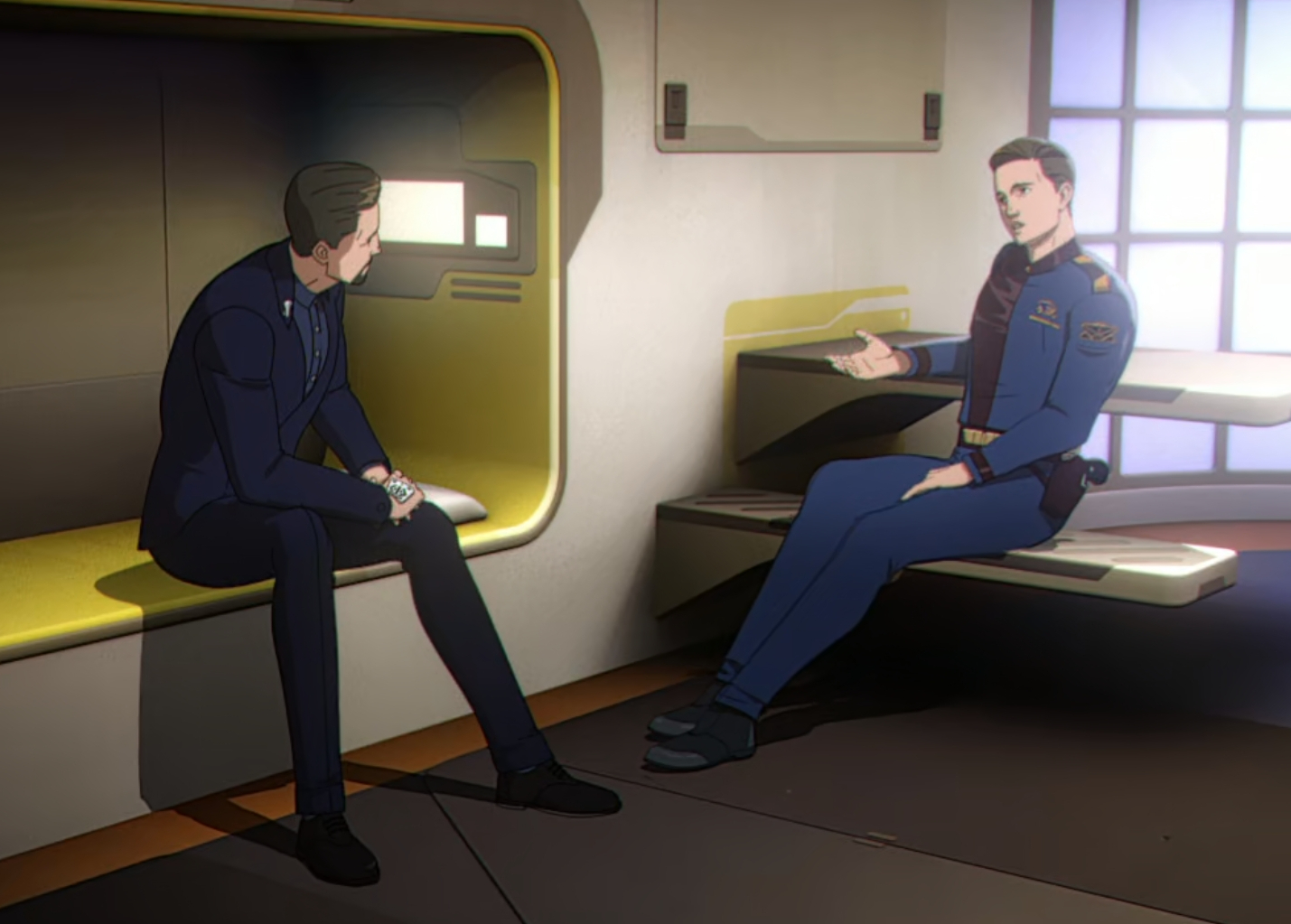
Overall, I liked The Road Home despite its issues. It has a lot of heart and a nice message about the power of love, with a winning lead performance and well-executed set pieces. If the plotting was tighter and the humor reigned in it would be a much stronger film, but still has a lot of the same promise I first felt 25 years ago. I hope this inspires a new generation to discover the series, and the filmmakers are able to build on their work with future installments.
Fan-ish Concerns
Now that I’ve judged the film on its own merits its time to indulge my inner B5 nerd, who was left confused or frustrated by several things.
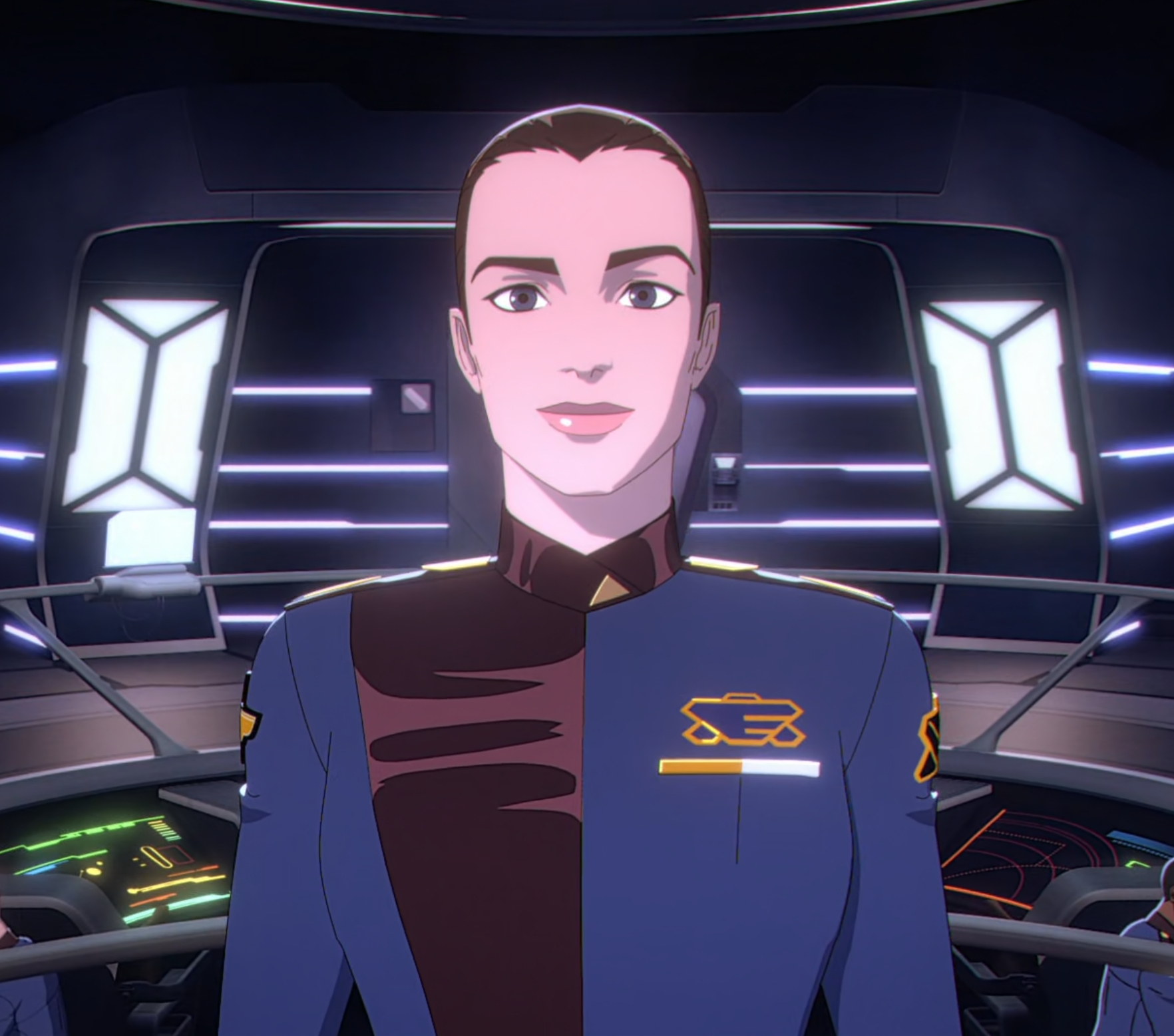
The Road Home does not fit organically into the original series timeline. The period this film starts in was already touched on in the show’s penultimate episode, and I find it hard to accept that a time-tripping Sheridan adventure happened in-between scenes. This has less to do with the actual events and more to do with the character’s moods, which seem too normal despite the events chronicled in the earlier episode. Along with other inconsistencies (such as a different line up of characters during the B5 farewell scene and Sheridan stating the wrong year for when he took command of the station) I’m wondering if the opening segments were also in a parallel timeline.
There were also some weird omissions, like Sheridan not acknowledging his deceased ex-wife’s presence on Z’Ha’Dum when he visited the Icarus. Muddling this further was the flashback to a news report detailing that ship’s fate, which left the impression that this is how Sheridan learned about the ship. That makes no sense for a multitude of reasons.
The portrayal of the Shadows in this film was, if you pardon the pun, a shadow of what it was in the series. There they were Machiavellian villains who plotted from the (forgive me again) shadows. They had a philosophy of evolution through strife and weren’t simply attacking the younger races for the hell of it. Here they’re generic sci-fi monsters with no discernable personality and that’s a shame.
Finally, the lack of closure for “prime” Sheridan left it ambiguous if the original timeline still exists. Zathras suggested on Epsilon III that the realties Sheridan observed were collapsing in on each other. Is our being left in the final timeline suggesting the old one is no longer around? And if so, does this close the book on that continuity forever? This would be sad if true.
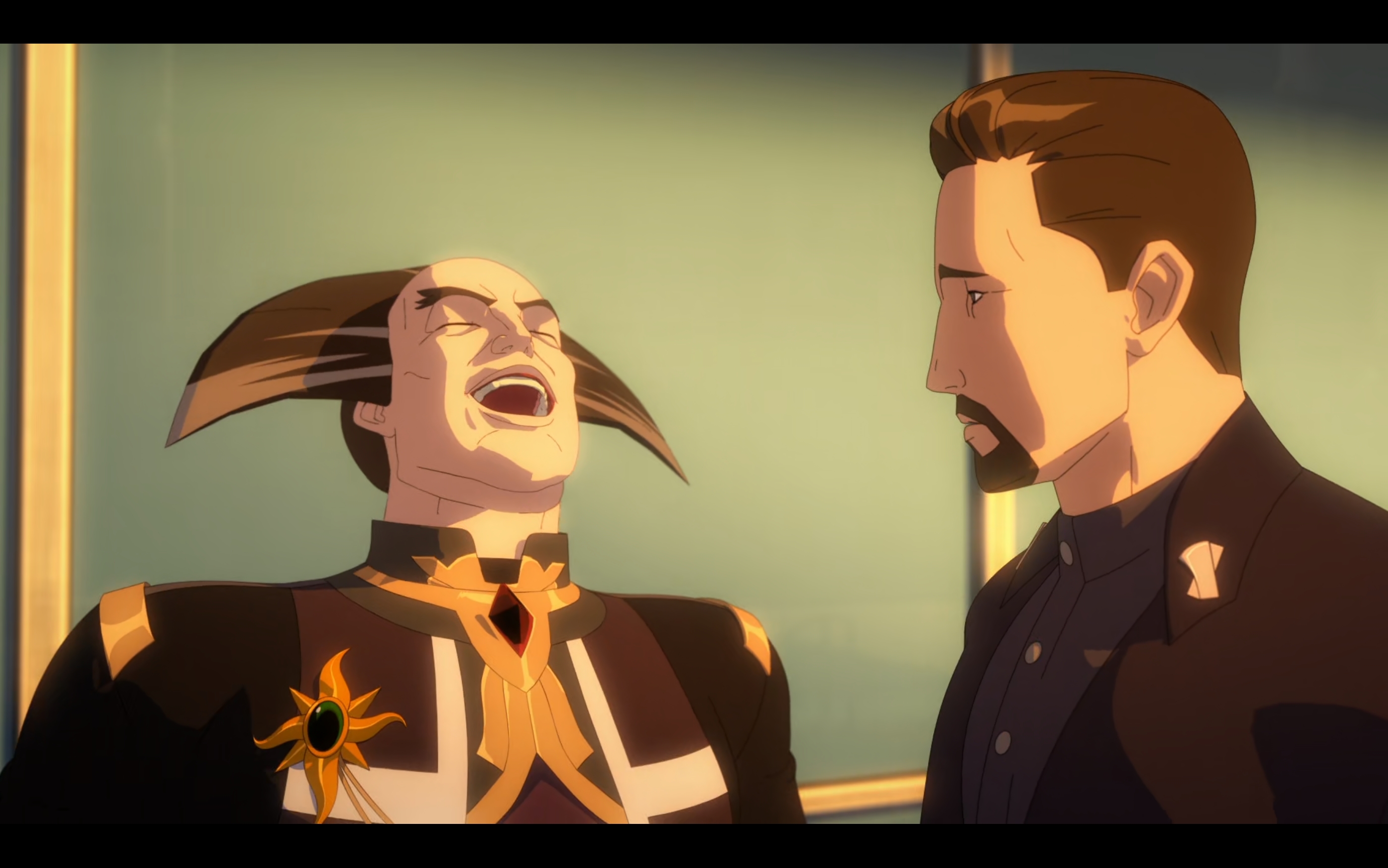
Other Notes:
- For those wondering, the two jokes I feel shouldn’t have made the final draft are the B5 computer shtick during the self-destruct sequence (“this isn’t just one of those having a bad day things,” “we are all victims of our programming”) and the baffling copyright joke by Zathras when Sheridan almost said “lost in space.”
- Add Franklin’s “talk to the wrist cause the hand doesn’t want to hear it” to that list while we’re at it.
- It’s so wonderful to have Peter Jurasik back as Londo. His “that’s fair” when G’Kar accuses him of thinking “the whole world belongs on a leash” is an all-time classic. And how wonderful was it to hear him bellow “Mr. Garibaldi” again?
- The film’s best set-piece was the Shadow assault on Babylon 5. The action, editing, and music really came together.
- Maybe this’ll be in a future film, but not having Ivanova and Lochley share a scene was a huge missed opportunity.
- “Everything ends… I am not afraid. Bring it!” Never change, Susan Ivanova.
- I forgot how much I love what Tracey Scoggins brought to the series. She has a special knack for delivering Straczynski’s style of dialog.
- A lot was made of how anxiety exacerbates the time jumps and that Sheridan needs to calm down and trust his instincts to return home, yet he really doesn’t do that in the end. Delenn and Zathras save him and he doesn’t learn anything he didn’t already know.
- Since when did Dr. Franklin become a time travel expert?
- The squeaking noise in Lochley’s closet reminded me of her “love bat,” a stress-reducing toy she obtained in the TV-movie “River of Souls.” It was disappointing to learn on the commentary that it was just a rubber ducky.
- The end credit’s memorial to Babylon 5’s “absent friends” was touching, but it’s a pity Rance Howard (who originally portrayed Sheridan’s father) wasn’t included.